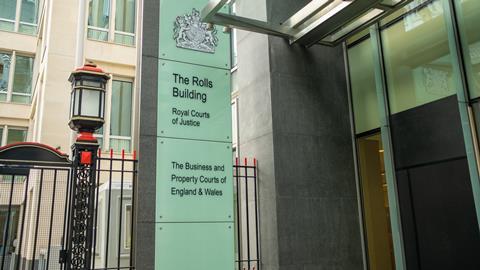The judgment in Nigeria v P&ID is a fascinating read. There is +$10 billion at stake; findings of bribery in the procurement of the underlying contract and during the arbitration process; untruthful/misleading witness evidence regarding that bribery; the improper receipt and use of privileged documents of one party by the other; and the censure of participating lawyers.
As such the conclusion (i.e. that the challenge to the awards under s.68 of the Arbitration Act was successful in there being a ‘serious irregularity’ affecting the awards because they ‘were obtained by fraud and … the way in which they were procured was contrary to public policy’) should not be surprising.
However, many readers will focus on the four pages of reflections by Justice Knowles on the agreement, the arbitration process and the awards. Here he invokes the hope that ‘the facts and circumstances of this case may provoke debate and reflection among the arbitration community, and also among state users of arbitration, and among other courts with responsibility to supervise or oversee arbitration. The facts and circumstances of this case, which are remarkable but very real, provide an opportunity to consider whether the arbitration process, which is of outstanding importance and value in the world, needs further attention where the value involved is so large and where a state is involved’.
Such calls for the arbitration community to pause and reflect are welcomed. And indeed (at least in my experience) those involved in the practice of arbitration (both commercial and investor state arbitration) are working hard to improve and standardise practice and procedure and address concerns around transparency and legitimacy of process. Institutions are regularly promulgating new rules and guidelines and most days somewhere in the world there is an arbitration conference addressing such issues.
That said, there is always ground to be made and without such reflection and work there is real ‘risk … that arbitration as a process becomes less reliable, less able to find difficult but important new legal ground, and more vulnerable to fraud’. We must continue to evolve.
However, the calls for reflection need to be considered against the several unfortunate observations regarding the performance of Nigeria and its lawyers in the underlying arbitration (i.e., not those representing it in the English proceedings). While he found that they were not corrupt (as was alleged by Nigeria of its own lawyers), Justice Knowles also observed that:
‘the case has shown examples where legal representatives did not do their work to the standard needed, where experts failed to do their work, and where politicians and civil servants failed to ensure that Nigeria as a state participated properly in the arbitration. The result was that the tribunal did not have the assistance that it was entitled to expect, and which makes the arbitration process work. And Nigeria did not in the event properly consider, select and attempt admittedly difficult legal and factual arguments that the circumstances likely required. Even without the dishonest behaviour of P&ID, Nigeria was compromised.’
Justice Knowles also suggests there was an imbalance ‘in the contributions of the parties’ that lead to form of the agreement at the centre of the dispute. Inherent in these observations is the suggestion that Nigeria was, at least in part, the author of its own problems – Nigeria was compromised by its own inaction and inattention.
As a neutral observer, I however strongly agree with the observations made by Lord Wolfson KC (counsel to the defendant in the English proceedings) in submission during the case:
‘Section 68 [the provision of the Arbitration Act relied upon by Nigeria to challenge the awards] is not there to give you a remedy if you instruct an honest lawyer who makes a mess of it or doesn’t take an available point. That is just tough. You have made your arbitration bed and you lie on it’.
As Justice Knowles acknowledged, Lord Wolfson’s comment is ‘blunt and correct.’ In other words, we, the arbitration community, should be careful in attempting to build mechanisms into the arbitration process that protect against the negligence of one party in the pursuit of their case. Arbitration is a consensual process and once the rules of engagement are set in the arbitration agreement it is for the parties to participate in the manner they agreed. To provide protections in the event of inattention or neglect from one party or the other would be to ignore this fundamental premise.
James Rogers is a partner at Jenner & Block, London
































No comments yet